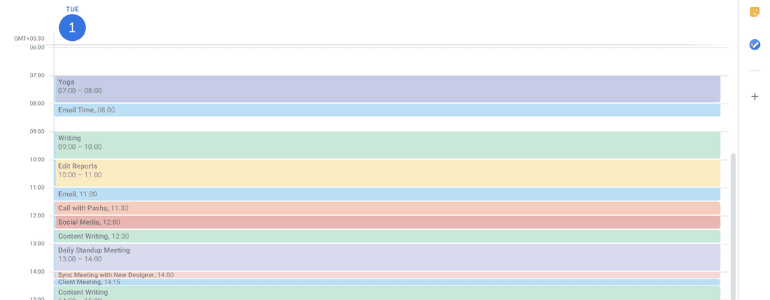How To Get A Producer To Read Your Script. (Updated 2018).
As someone who gets a minimum of 10 script submissions a week, I can tell you first hand that I know how hard it is to get a Producer to read your script and give it even 1/10th of the time and energy that you gave when you wrote it.
So what can you do to get that Producer to take that first step to producing your show and actually sit down and read your script?
Here are five tips on how to get a Producer to read your script:
1. THE ASSISTANT APPROACH
Surprise, surprise, most people who work in Producers’ offices love plays and musicals, and have similar tastes to their boss, or at least know what the boss likes or doesn’t like (no one in my office is bringing me absurdist operas about Dadaism and its effect on South African monkeys).
Odds are that these people don’t get a minimum of 10 scripts a week sent to them like the guy or gal with their name on the door. So find a way to get your script to them (which will probably make them feel pretty special and they’ll be even more inclined to like it). If they do read it, and if they do like it, they’ll have 40+ hours a week to push it to the Producer. If the Producer has already hired that person, then they already trust them, so odds are high that he or she will read it. I know I’d read anything that my staff asked me to.
2. THE TREATMENT APPROACH
Time is moolah, so sitting down (or standing up) and reading a script is a major investment for someone with a busy schedule. I once did NOT read a play simply because it was 187 pages. It could have been the next August: Osage County, but the thought of flipping 187 pages when I looked at my schedule made me throw up in my mouth (BTW, I did give it to an associate to read, and it was NOT August: Osage County). The last thing you want is the taste of vomit in a Producer’s mouth before they’ve even glanced at your script.
Why not send a paragraph or one page treatment to whet the appetite of the Producer. Or just send one of the best scenes (Producers tend to make up their minds quickly about plays and if your first few pages don’t grab the reader . . . don’t start by sending the whole play which starts with the first few pages!!!)
Along with the treatment, include a postage-paid postcard with a box to check to request the full play, or ask him or her to reply to an email if he or she wants to read the full play. Not every show is for every Producer, and that doesn’t mean it’s a bad script. God knows, the Dadaism opera could be the next Jersey Boys, but
I still wouldn’t want to produce it. Why waste the Producer’s time and the Earth’s trees if the show isn’t a concept that appeals to the Producer?
Anyone can read a page. Bait the Producer. Get him or her to ask YOU for something. Make them beg for it. It’ll put a little psychological power back in your court.
3. THE PRODUCTION APPROACH
Produce the show. Anywhere. Anyhow. Produced shows have more value. I don’t care if it was up at a community theater, a black box on the lower-east side, or in your college dorm room. Get it up, and tell me that it was up, and show me some good reviews. A few random quotes from a Philadelphia paper is what got me interested in the book writer of Altar Boyz‘s work. Without those quotes, he and I never would have met, and the show wouldn’t be the same.
It doesn’t even matter what the production values were like or if you only sold 2 tickets. Just give me the highlights . . . like a (here we go) baseball game on the 11 PM news. Show me the game happened. Show me that you won. And show me a couple of great ‘plays’. But I don’t need to know everything.
4. THE PAY THE PRODUCER TO READ IT APPROACH.
Just kidding. 😉
5. THE CONTEST APPROACH.
Can’t get a show up? Win a contest. There are zillions of playwriting contests out there. Enter a few. Win a lot. Slap that seal of approval all over your cover page that you send with your one-pager. Awards are cool and even if it’s from an organization I’ve never heard of, it still makes Producers sit up and take notice. (By the way, contest deadlines are also great ways to motivate yourself to finish something if you’re having trouble setting a deadline for yourself)
There are many other ways to get Producers to read your script. Just put yourself in their shoes. Imagine that they don’t know you or what it took to write your baby. What would make you read it?
Oh, and what do you do if you try all this, and do your follow up, and they still say they don’t want to read your script?
Move on. #$*&( ’em. You can thank them for passing on it when you win your Tony Award, because there was obviously someone better suited to produce it.
You just have to get that person to read it.
(Oh, and before you try to get a Producer to read your script, make sure that script is ready for reading! You only get one chance to make that first impression, so make sure your script is tuned up and the best it can be before submitting. I suggest you do readings, have friends read it, and I also strongly suggest getting your hands on my “How to Self Diagnose Your Script Execution Plan!” Click here to snag your copy now! All this will prevent your script from just getting tossed on the stack.)
_ _ _ _
Want to know what actual writers did to get their script read, and what producers look for in a show? Get inside knowledge when you listen in on my one-on-one podcasts with Joe Dipietro, Barry Weissler, and Stephen Flaherty.
Get more knowledge about the industry, monthly newsletters and webinars—like Get Your Show Off The Ground, plus a Tip of the Week email, when you join The TheaterMakers Studio.
Podcasting
Ken created one of the first Broadway podcasts, recording over 250 episodes over 7 years. It features interviews with A-listers in the theater about how they “made it”, including 2 Pulitzer Prize Winners, 7 Academy Award Winners and 76 Tony Award winners. Notable guests include Pasek & Paul, Kenny Leon, Lynn Ahrens and more.

















